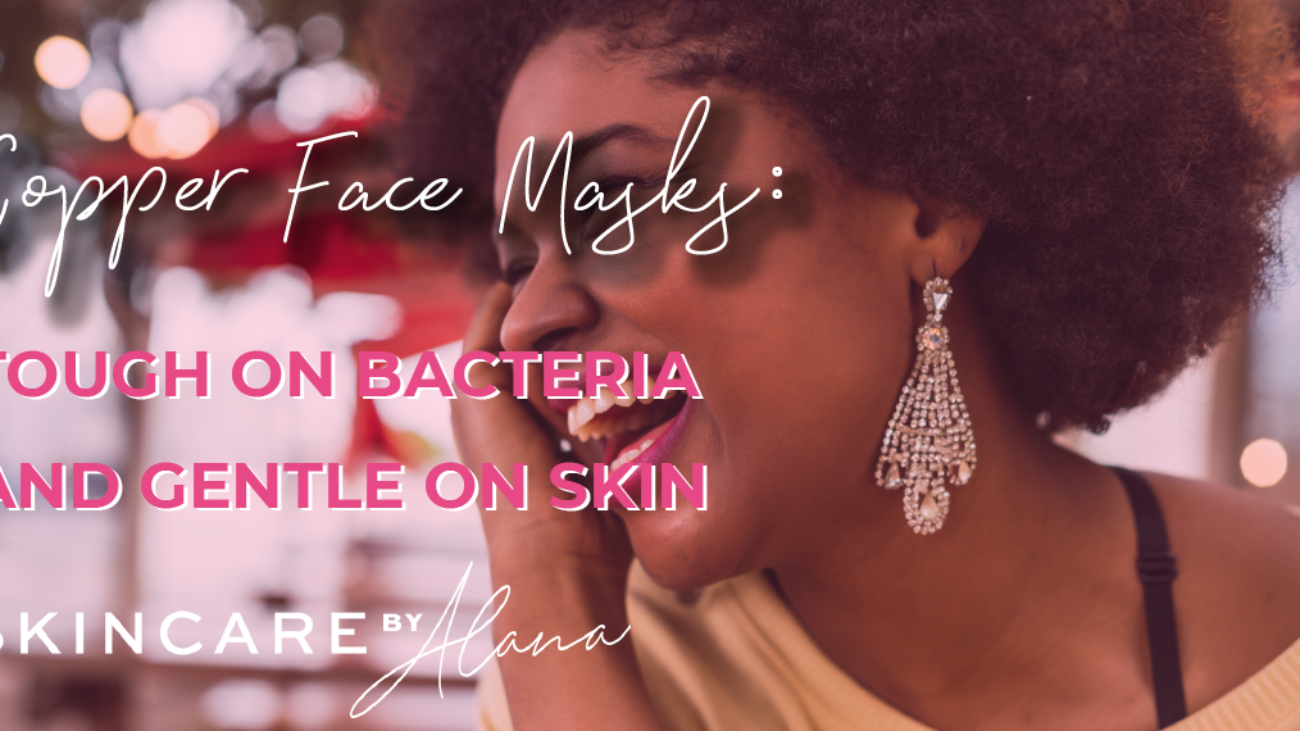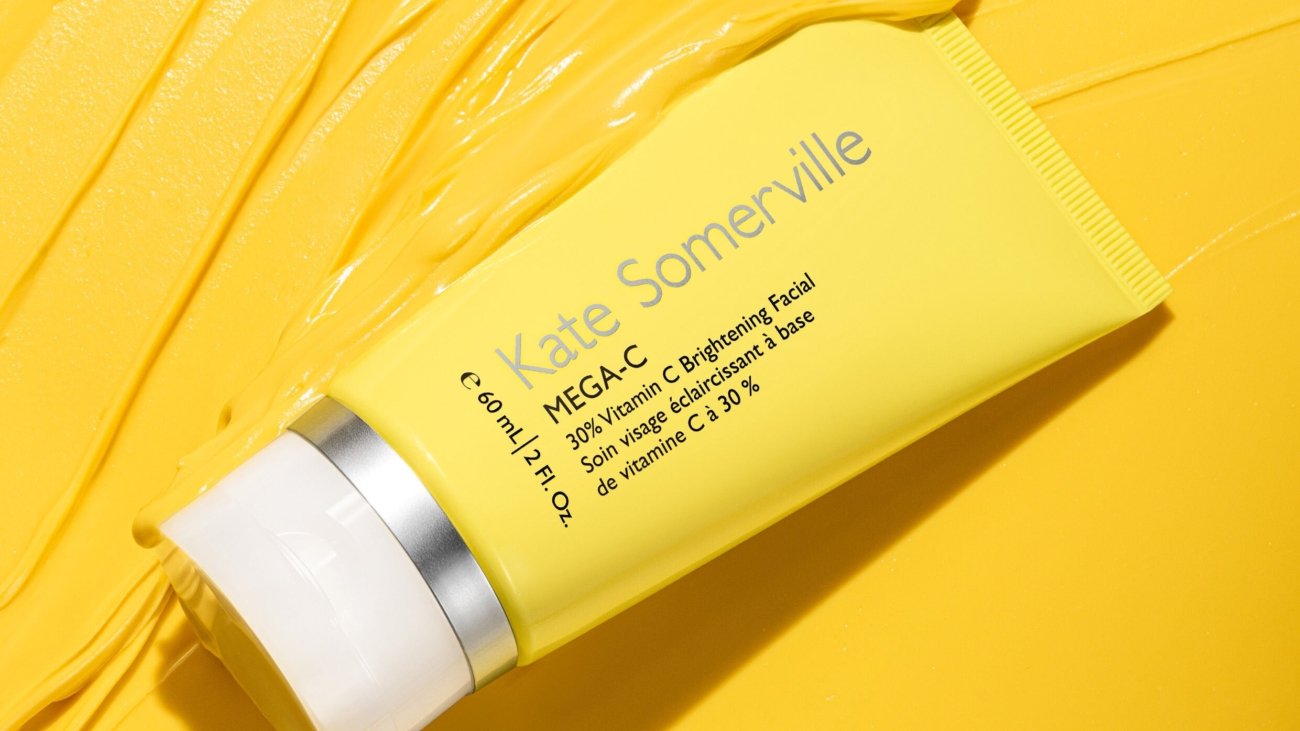
There are a lot of annoyances and aggravations when it comes to face masks.
Too big, and they slip right off.
Too small and your ears are aching!
Remember that cute pastel outfit you had planned?
Well, now imagine it with your run of the mill black paper face mask.
On top of it all, in case you forgot you just wore your mask for 8+ hours, acne will remind you.
For all their aggravations, face masks have a very important job to do.
Primarily, we wear face masks to protect the people around us from COVID-19.
They are quite literally a necessity in our modern-day lives, yet we aren’t seeing much product innovation outside of new fabrics and adjustable straps.
What if your face mask could do good for your skin and still protect others from the virus?
That’s what got us thinking and turning to our arsenal of skincare products to find a mask that doesn’t sacrifice our skin’s health or the health of others.
How do face masks affect our skin?
The team at Skincare by Alana is used to being surrounded by the latest and greatest in skincare.
We stay up to date on the trends and tune in to the issues people are starting to experience.
Not to mention, we’re going through them too!
Maskne was among the top priority skincare concerns this past year.
Sure, we have lots of advice on preventing and treating maskne, but it tends to come in cycles; we wash our masks, we wear them out, we trap in bacteria, we wash our faces, then we have to wash our masks again and spot treat any acne that pops up.
Maskne, and acne in general, can be quite stubborn when you continually repeat the same patterns, much like we are all forced to do now.
Breakouts occur because the face mask covers our nose and mouth, which allows air and humidity to get trapped inside and clogs our pores with dirt, sweat and oil.
In short terms, this is the perfect breeding ground for bacteria.
Although we just refer to it as maskne, it’s very similar to acne mechanica, a rash-like type of acne common among athletes.
This is usually caused by the sweat, heat, and friction in helmets, straps, bandages, and crutches can cause.
It can also cause dryness, redness, dark spots, or patches of inflamed skin.
Think about where your maskne is popping up – it’s probably where the fabric meets your face.
On top of this (and I promise we won’t dwell on the negatives for much longer), many of us are getting stress acne and aren’t following the same good-for-your-skin routines as we were before.
When it comes to treating acne, we’ve got you covered with a thorough anti-maskne plan from washing your mask to washing your face.
We’ve also gone one step further to avoid maskne altogether by developing a face mask that can help your skin, not hurt it, and we’ve used a surprising ingredient – copper.

Introducing, the Copper Face Mask
Copper is a fairly common ingredient in skincare, but we were happy to learn that it’s also a great element when it comes to killing bacteria.
We’ll get into all the nitty-gritty of how it works below, but let’s just touch on our latest face mask (and no, we don’t mean a sheet mask) – the Anti-Aging Protective Copper Face Mask.
This mask is made of soft and lightweight polyester and lined with a soft antibacterial copper fiber cloth.
We made sure to create a luxe yet comfortable face mask that can hold its own against a nice outfit yet is simple enough to style every day.
It can be hand washed or tossed in the washing machine and comes with adjustable straps, making it perfect for everyday wear.
These are perfect for the frontline worker who wants to run some quick errands without worrying about irritation or aggravation to their face mask-familiar skin.
Once we learned about copper’s ability to fight off germs, it was a no brainer!
Here’s what we found.
How does copper affect germs?
Copper has antimicrobial properties, which is why it’s important for skincare and for face masks.
This means that microorganisms like bacteria and viruses die when they come into contact with fiber.
Though it’s not fully understood how, many independent studies have revealed that copper can kill germs in a few ways.
Firstly, copper ions can damage cell membranes and destroy the DNA and RNA of the microbe.
Secondly, it can generate oxidative stress and create hydrogen peroxide to kill the bacterial cells.
Lastly, because copper is not considered a stable metal, it interferes with the proteins that keep these bacterial cells through mis-metalation.
A recent study conducted by researchers at the National Institutes of Health and the Centers for Disease Control and Prevention (CDC) reporting that the SARS-CoV-2 virus, which causes the disease COVID-19, remained viable for up to 2 to 3 days on plastic and stainless steel surfaces vs. up to 4 hours on copper.
The study also found that no viable SARS-CoV-1 was measured after 8 hours.
You can read the full study here.
It may also be able to effectively kill Methicillin-resistant Staphylococcus aureus (MRSA), Escherichia coli (E. coli) bacteria, Influenza A, and Norovirus, according to a 2015 study.
So what does this all mean?
Essentially, since the face mask is lined with a copper woven cloth, it may help to kill bacteria and help to slow the spread, disinfect your mask quicker, and keep these harmful bacteria off of your face.
With that said, in accordance with CDC guidelines, no face mask including our own should be used as a sole method to guarantee the spread of any virus, including COVID-19.
It also bears saying that many surfaces that you believe to be copper should not be trusted to be bacteria-free due to protective coatings and oxidation.
Simply, if we are going to wear face masks every day, we might as well keep up with the latest studies to protect our skin and hopefully continue to help others.

What does copper do for the skin?
Copper peptides have been a very buzzy ingredient over the past couple of years.
They’re believed to be extremely effective because they work hand in hand with a naturally occurring and incredibly important anti-aging factor – collagen.
As you might already know, collagen is what keeps our skin firm, tight, and wrinkle-free./span>
It’s often referred to as scaffolding, making it easy to build strength and volume in the layers of the skin.
Our bodies produce collagen naturally, but as we age, our production begins to slow down and the collagen already in our bodies can be damaged.
Most anti-aging products leverage collagen’s natural anti-aging abilities and try to stimulate the skin to make more.
This is the case with copper.
The scientific name for copper peptides is glycyl-L-histidyl-L-lysine or GHK for short.
You might see copper peptides listed on some products and GHK on the other, so just know that they are the same thing.
Copper is able to penetrate the skin below the epidermis where collagen and elastin are produced.
This makes it extremely useful for wound healing, improves the take of transplanted skin, and also possesses anti-inflammatory actions.
Studies have shown that copper can help to “fill in” fine lines and wrinkles by increasing the collagen proteins in the skin.
It also creates plumper, firmer skin by also stimulating elastin.
It may also help to make skin smoother and more supple.
Since copper is so important in skin healing and repair, it may also help to even out skin tone and improve the appearance of age spots, sun spots, scars, and acne scars.
Lastly, copper may have antioxidant properties!
A study found that copper may help to decrease the risk of infections.
Since our anti-aging protective copper face mask is lined with copper, this means that all day your face mask is working for your skin.
It can help to reduce the wrinkles and irritation that you’d typically experience with a regular face mask.
It also means that it can disinfect itself in between wears rather than a dingy cotton mask that soaks up moisture and bacteria.
Metal allergies or hypersensitivity are not that uncommon.
You may have experienced discoloration or irritation due to wearing jewelry with copper in it.
People with autoimmune disorders can have a higher risk of metal hypersensitivity, as their immune system is in a constant state of activity.
You should always test a small amount of the product on your skin before applying it to the face to test your skin’s sensitivity.

Copper for your Hair
Interestingly, copper can also support most of your hair goals!
Copper both maintains and stimulates blood flow within the skin, including the scalp.
By ensuring that your scalp is healthy, it means that your hair can grow healthier, longer, and stronger.
It may also stimulate oxygen flow which your hair needs to breathe and grow!
Copper is also necessary for the skin and hair to produce melanin, so the more we have and the longer we hold onto it, the longer we retain our natural hair color and keep grays away.
Other Minerals for Better Skincare
Copper isn’t the only mineral that’s good for your skin! It also “plays” well with:
Magnesium
Magnesium Aluminum Silicate Absorbent: A clay that is absorbent and used for its anti-caking properties.
Magnesium Ascorbyl Phosphate: Derived from Vitamin C, this substance is used in skincare products. It is an antioxidant and the body can easily convert it to ascorbic acid (Vitamin C). It also assists in collagen production as well as being used as a skin lightener.
Magnesium Citrate: This agent is a magnesium salt that comes from citric acid. Sometimes made into dietary supplements. It is frequently used before surgeries or diagnostic tests to empty the bowels. It is also an ingredient in products for the hair to help set a style or add body.
Zinc
Without zinc, the body could not process fats, proteins, carbohydrates and alcohol. Zinc is also necessary for ridding the body of carbon dioxide and using Vitamin A effectively. Zinc also gives the immune system the boost it needs to heal wounds more quickly. It is a critical aspect of growing and maintaining body tissue.
Biomin Aquacinque
This is a specific mixture of magnesium, iron, zinc, copper, and silicon (with a yeast additive) mixed together in an aqueous solution to form a skincare product.
Iron
A mineral that is in both animal and plant tissue. Its main function is combining copper and protein together to make hemoglobin. Iron also combats fatigue and supports good skin tone.
Vitamin C
Okay, this one is a mix-up from the list above but it’s worth including. Vitamin C is necessary for the body to produce collagen, thus it’s necessary for copper to work its magic! There are plenty of products with vitamin C from serums to sheet masks, but your first line of defense should be eating a diet with plenty of vitamin C! That means your fruits and veggies, people!
Products with copper
If you want to incorporate copper into your skincare routine whether you stay in or go out, there are a couple of creative ways to do it! Here are some of our favorites
Alana Mitchell Anti Aging Protective Copper Face Mask: Our first ever face covering that uses an anti-aging copper technology to keep your skin fresh and clean while you’re out and about!
iS Clinical Copper Firming Mist: This hydrating facial refresher protects against dehydrated skin, soothes irritation and sunburn, and even sets your makeup to give your skin a dewy glow. It’s a great no-hassle product that you can grab and go whenever you need a little boost!
June Jacobs Age Defying Ultimate Overnight Copper Marine Masque: This product is loaded with natural ingredients! Sea lavender, red algae, marine-derived elastin, and sweet almond seed extract help skin maintain elasticity and reduce the appearance of fine lines and wrinkles while locking in natural moisture. Copper, zinc and magnesium (essential minerals) help restore skin vitality.
Iluminage Skin Rejuvenating Pillowcase with Anti-Aging Copper Technology: Beauty sleep upgrade! This pillowcase is woven with copper to help you get your best night of beauty rest. It will defy wrinkles and kill bacteria rather than soaking it all up. I love a skincare routine that includes sleep!
June Jacobs Age Defying Copper Serum: This lightweight, luxurious serum is a must-have. It uses copper, zinc, and magnesium to boost your skin’s natural elastin and collagen production while locking in moisture. It’s gentle enough to use every day!
Iluminage Skin Rejuvenating Eye Mask with Anti-Aging Copper Technology: Want to focus solely on your eyes? You don’t need to add another step to your skincare routine, you just need to sleep! This eye mask is also woven with copper to help soothe tired and irritated eyes to help you look young and rejuvenated!
Need more help crafting your perfect skincare routine? Start here with our free online skincare quiz or read through our blogs to shine a spotlight on the most talked about skincare ingredients.
Source link



